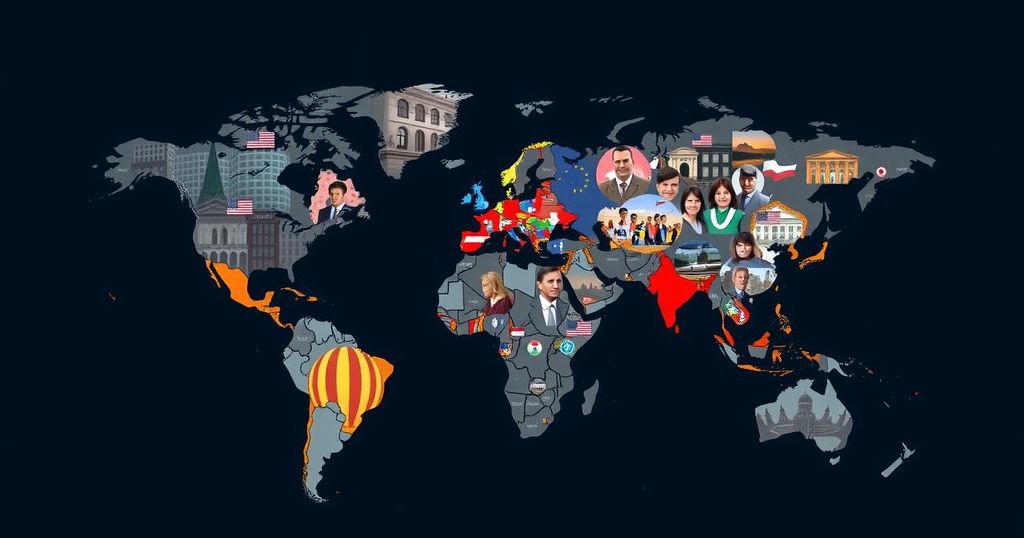The UN reports a worsening humanitarian crisis in Syria due to ongoing conflict, with alarming impacts on children and humanitarian operations. Survivors of the 2022 protests in Iran demand accountability for human rights abuses, while the UN calls for political freedoms in South Sudan ahead of upcoming elections in December 2026.
The humanitarian situation in Syria has worsened due to ongoing hostilities, as highlighted by the UN Office for the Coordination of Humanitarian Affairs (OCHA). Recently, an airstrike at the Ad Dabousiyah border crossing has resulted in civilian casualties, including a volunteer from the Syrian Arab Red Crescent. This incident has halted all humanitarian activities at border crossings until further notice, emphasizing the urgent need for the protection of aid workers under international law.
Deputy Regional Humanitarian Coordinator David Carden has raised concerns regarding increasing violence in Idlib and western Aleppo, which has tragic implications for children in the region. Recent artillery shelling has led to the deaths of three boys and injuries to others attending school. Furthermore, many NGOs have ceased their operations due to safety concerns, with health facilities and key infrastructure also impacted.
In Iran, calls for accountability have emerged from survivors of the 2022 “Women, Life, Freedom” protests, amidst claims of gross human rights violations. The Independent International Fact-Finding Mission (FFM) convened in Germany to hear the accounts of over fifty Iranian survivors. They recounted severe abuses such as torture and arbitrary detention, particularly following the death of Jina Mahsa Amini while in police custody. FFM Chair Sara Hossain stressed the significance of adopting a victim-centered approach in pursuing justice and accountability for these violations.
Amidst ongoing repression, survivors remain resolute in their quest for justice and international support, with plans for a comprehensive report to the Human Rights Council slated for March 2025.
In South Sudan, the head of the UN Mission, Nicholas Haysom, urged provincial governors to foster political freedoms in anticipation of the country’s first democratic elections in December 2026. During the annual Governors’ Forum in Juba, Mr. Haysom emphasized the critical need for state leaders to establish a conducive environment for civic engagement, through effective governance and accountability measures. He highlighted the importance of basic service delivery and security training as foundational elements for promoting sustainable peace and overcoming national developmental challenges.
This article discusses significant global humanitarian and political issues affecting Syria, Iran, and South Sudan. In Syria, ongoing conflict has intensified an already severe humanitarian crisis, endangering aid workers and civilians. In Iran, a legacy of violence from the 2022 protests against state repression continues to seek justice from the international community. Finally, in South Sudan, the United Nations advocates for democratic processes as the nation prepares for its first elections in several years, emphasizing the need for civic engagement and governance reforms for a peaceful future.
The situation highlighted in Syria demonstrates the urgent need for international adherence to humanitarian protection laws amidst escalating violence. In Iran, survivors of state violence continue to seek accountability for human rights violations committed during protests, indicating a pressing need for global support in their pursuit of justice. In South Sudan, the UN emphasizes the importance of governance and civic engagement as essential elements in the lead-up to democratic elections, aiming for a more stable and peaceful future for the nation.
Original Source: news.un.org






